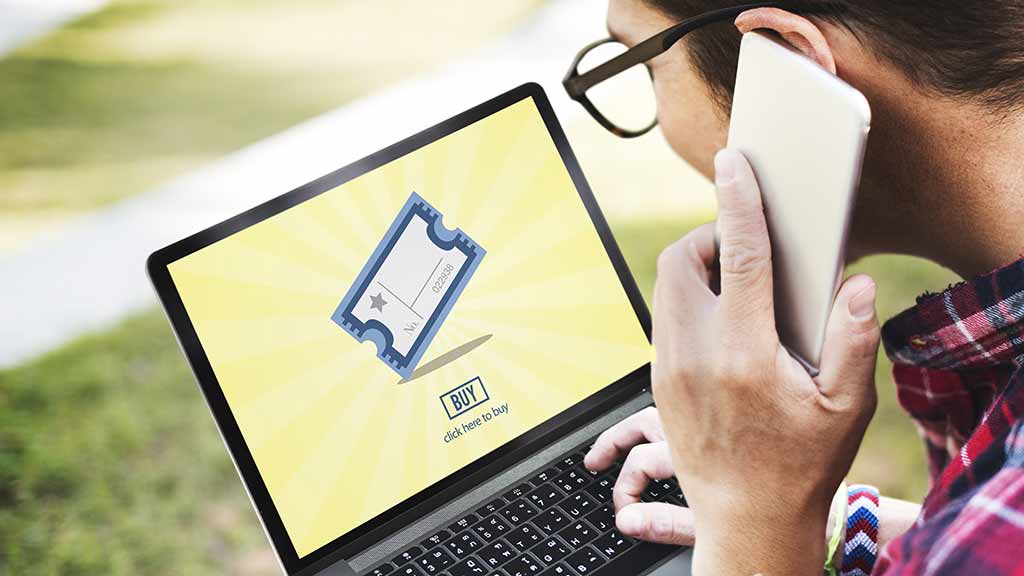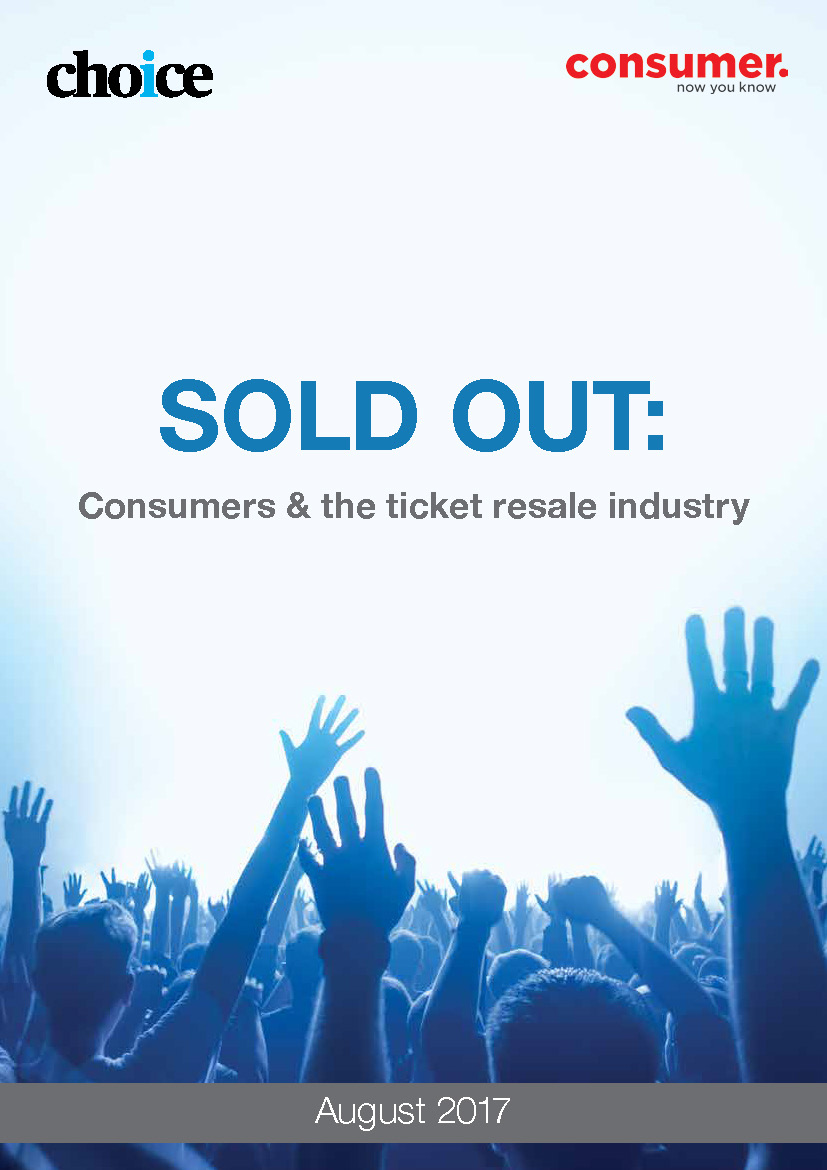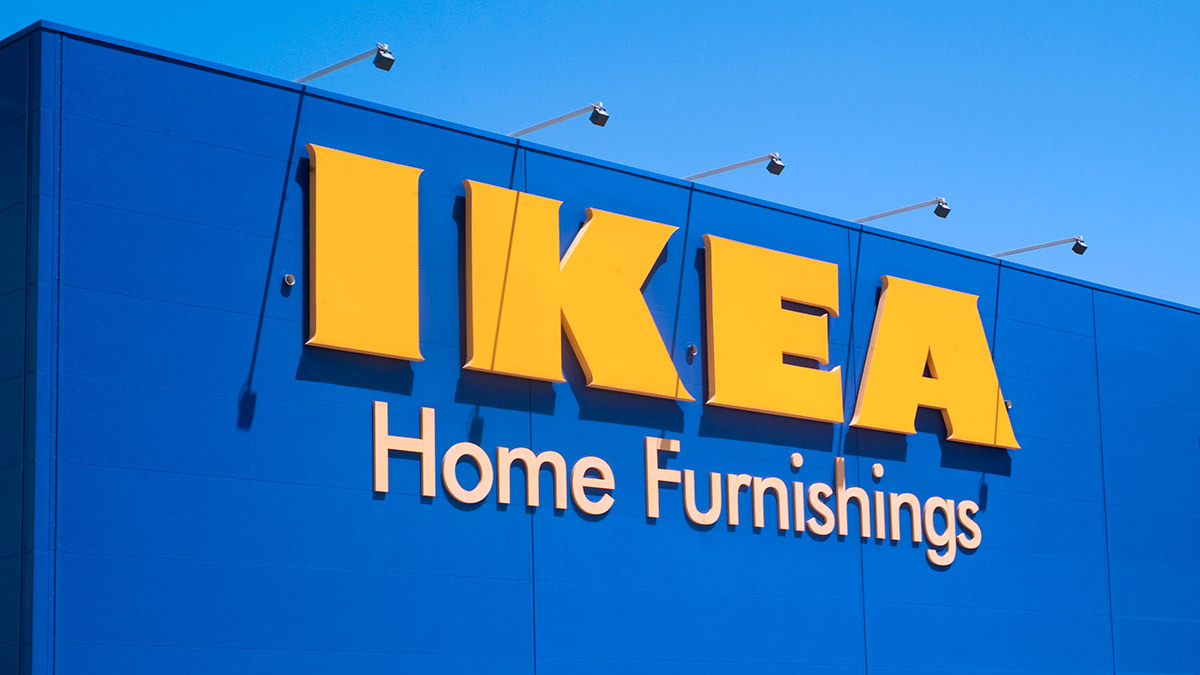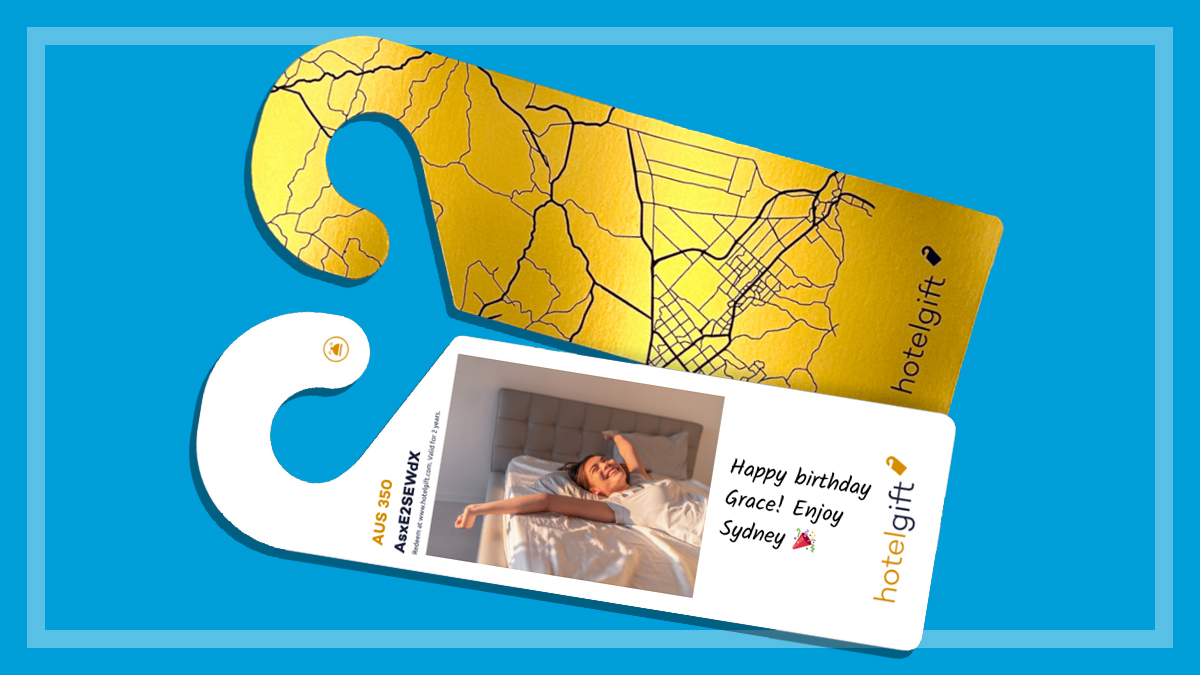Get our independent lab tests, expert reviews and honest advice.
CHOICE report: Ticket resellers Viagogo and Ticketmaster Reseller gouging Australians

“Dark pattern” tactics are being used to dupe Australians into paying up to 900% more for tickets that are resold by third-party sites, a joint report from three consumer bodies reveals.
The Australian ticketing resale market has fared the worst in a report examining complaints conducted by Which?, Consumer NZ and CHOICE.
The report, Sold out: Consumers & the Ticket Resale Industry [PDF], examined more than a thousand complaints in the markets of Australia, NZ and the UK.

Resale websites disguised as “official” sites
Tickets purchased in Australia from resale sites such as Viagogo, TicketMaster Resale and StubHub were sold higher than face value in 83% of cases, had hidden fees tacked on in 68% of cases and were for the wrong seats in 8% of cases.
But four-out-of-five Australians who purchased a ticket from these resellers believed they were buying it from an official vendor, in part because of how they were marketed and because of the design tactics used by these sites.
Viagogo, which “overwhelmingly accounted for the majority of customer service problems”, buys the valued real-estate of a top Google Search result for upcoming concerts and events, and then lists itself as an “official site”.
Facebook is also used to feign a genuine events page. Clicking the link in the description can often divert ardent fans to reseller sites.
False urgency
These reseller sites then subject people to deceptive tactics known as dark patterns, which are design and text cues intended to fabricate a sense of urgency so that a sale is made on the spot.
“These are the last tickets left at this price, don’t wait until it’s too late!” one message can read. Or a warning sign will pop up urging there are “less than 1% of tickets left for this event”.
Extreme markups and charges
The majority of sales are made at notable markups. A Perth man paid $90 for an AFL ticket and was given a kids’ ticket valued at $7 – a markup of 900%.
Another instance involved a $70 ticket that was sold on a reseller’s site for $650 – a markup of 829%.
These markups – the highest detailed in the report – both happened in Australia.
The worst ticket resale offenders were found to tack on charges that commonly equate to 25% of the ticket’s value.
Pensioner Dugald Docherty told CHOICE he was hit with a $512 ‘Viagogo service fee’ when he bought a $2201 ticket to a soccer game last year. The fees alone cost more than the $442 sales price officially being offered by the club for the best seats in the house.
It took him five months of emails, calls and legal threats to earn a refund.
ACCC gets involved
Findings from a CHOICE investigation into ticket resellers were turned over to the Australian Competition and Consumer Commission (ACCC) in March. The competition watchdog initiated legal action against Viagogo earlier this week, alleging it made false and misleading representations, and by engaging in misleading and deceptive conduct.
The issue of ticket resales is an international one as people often buy them to see shows in foreign countries. The most egregious of these companies, which appears to be Viagogo, is under investigation by the government organisations representing consumers in the UK, US and in its home country of Switzerland.
About the report
We heard from consumers across markets that the ticket resale industry wasn’t working for them.
They told us that their top problems in this industry were steep prices, hidden fees and confusion about who they’re dealing with. Consumers also complained about poor customer service, tickets never arriving and fraudulent tickets.
After receiving complaints about the conduct of the ticket resale market, consumer organisations CHOICE (Australia) and Consumer NZ (New Zealand) decided to collect case studies from consumers who had bought tickets in the resale or secondary market.
Which? (UK) also collected and shared case studies, which were included in the report, ‘Sold out: Consumers & the ticket resale industry’.
Changes we’re calling for
- Consumers need better information to help them decide if they want to use a resale site. Promoters, venues, and ticketing companies should specify the number of tickets available for pre-sale and general sale, the number of events scheduled for a tour and the number of seats in a venue.
- Ticketing companies should develop and invest in new technologies to distribute tickets, such as “verified fans” programs, to curb the business of professional scalpers.
- Ticketing companies, artists and promoters should invest in innovations to reduce fraud, for example by allowing name changes on tickets or by developing better ticketing systems.
- Resale websites should clearly state they are ticket resellers and remove any dubious “official” claims in advertising. Resale websites should also remove misleading statements such as “last tickets left” and “selling fast”.
- Resale websites should clearly state tickets’ details during the booking process, including, where relevant, the seat and row number, venue, original price, and restrictions.





